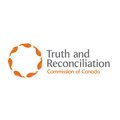Yesterday, the final report from the Truth and Reconciliation Commission (TRC) was released after years of painful hearings and testimony from thousands of residential school survivors and many others. The report makes 94 calls to action that, if followed, will make an attempt to repair the relationship between Aboriginal people and the rest of Canada. SaskCulture acknowledges the importance and historical significance of the release this document and would like to highlight that several of the recommendations pertain to culture, including recommendations around language, culture, museums, archives and newcomers to Canada. They are as follows:
Language and Culture
13. We call upon the federal government to acknowledge that Aboriginal rights include Aboriginal language rights.
14. We call upon the federal government to enact an Aboriginal Languages Act that incorporates the following principles:
i. Aboriginal languages are fundamental and valued element of Canadian culture and society, and there is an urgency to preserve them.
ii. Aboriginal language rights are reinforced by the Treaties.
iii. The federal government has a responsibility to provide sufficient funds for Aboriginal language revitalization and preservation.
iv. The preservation, revitalization, and strengthening of Aboriginal languages and cultures are best managed by Aboriginal people and communities.
v. Funding for Aboriginal language initiatives must reflect the diversity of Aboriginal languages.
15. We call upon the federal government to appoint, in consultation with Aboriginal groups, an Aboriginal Languages Commissioner. The Commissioner should help promote Aboriginal languages and report on the adequacy of federal funding of Aboriginal languages initiatives.
16. We call upon post-secondary institutions to create university and college degree and diploma programs in Aboriginal Languages.
17. We call upon all levels of governments to enable residential school survivors and their families to reclaim names changed by the residential school system by waiving administrative costs for a period of five years for the name change process and the revision of official identity documents, such as birth certificates, passports, driver’s licenses, health cards, status cards, and social insurance numbers.
Museums and Archives
67. We call upon the federal government to provide funding to the Canadian Museums Association to undertake, in collaboration with Aboriginal peoples, a national review of museum policies and best practices to determine the level of compliance with the United Nations Declaration on the Rights of Indigenous Peoples and to make recommendations.
68. We call upon the federal government, in collaboration with Aboriginal peoples, and the Canadian Museums Association to mark the 150th anniversary of Canadian Confederation in 2017 by establishing a dedicated national funding program for commemoration projects on the theme of reconciliation.
69. We call upon Library and Archives Canada to:
i. Fully adopt and implement the United Nations Declaration on the Rights of Indigenous Peoples and the United Nations Joinet-Orentlicher Principles, as related to Aboriginal peoples’ inalienable right to know the truth about what happened and why, with regard to human rights violations committed against them in residential schools.
ii. Ensure that its record holdings related to residential schools are accessible to the public.
iii. Commit more resources to its public education materials and programming on residential schools.
70. We call upon the federal government to provide funding to the Canadian Association of Archivists to undertake, in collaboration with Aboriginal peoples, a national review of archival policies and best practices to:
i. Determine the level of compliance with the United Nations Declaration on the Rights of Indigenous Peoples and the United Nations Joinet-Orentlicher Principles, as related to Aboriginal peoples’ inalienable right to know the truth about what happened and why, with regard to human rights violations committed against them in residential schools.
ii. Produce a report with recommendations for full implementation of these international mechanisms as a reconciliation framework for Canadian archives.
Newcomers to Canada
93. We call upon the federal government, in collaboration with the national Aboriginal organizations, to revise the information kit for newcomers to Canada and its citizenship test to reflect a more inclusive history of the diverse Aboriginal peoples of Canada, including information about the Treaties and history of residential schools.
94. We call upon the Government of Canada to replace the Oath of Citizenship with the following:
I swear (or affirm) that I will be faithful and bear true allegiance to Her Majesty Queen Elizabeth II, Queen of Canada, Her Heirs and Successors, and that I will faithfully observe the laws of Canada including Treaties with Indigenous Peoples, and fulfill my duties as a Canadian citizen.
SaskCulture encourages the cultural community of Saskatchewan to recognize the significance of this report and all of the calls to action set out by the TRC, especially those related to culture, and to consider how this national milestone affects all Canadians, including those who come from settler heritage, as well as those who are of Aboriginal ancestry. In our work to build inclusiveness and share a diversity of experiences, it is important for us all to understand the multi-generational impact of residential schools and be a respectful, engaged part of the reconciliation process moving forward.


